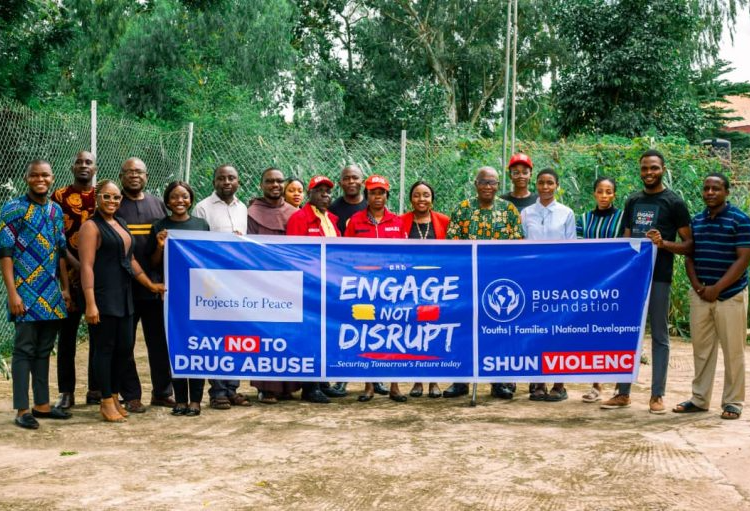An Enugu based foundation Busaosowo Foundation (BF) has blamed the rising cases of drug abuse in Enugu State on parental and governmental neglect of children.
The executive director of the foundation, Mr Busaosowo Bisong stated this during the “Collaborative Training Session On Enhancing Drug Abuse Prevention Efforts” in Enugu State, yesterday.
The News Agency of Nigeria (NAN) reports that BF organised the training with the support from “Projects for Peace” based in New York, USA, as part of the “Engage Not Disrupt project.”
It was attended by the National Drug Law Enforcement Agency (NDLEA) and different NGOs such as RED Foundation, Carmelites Prisoners Interest Organisation, David Folaranmi Foundation and Oganiru Youth Centre.
Others are Heart That Care for Better Health Organisation, Beautifiers House, Daniel Ukwu Leadership Foundation and Society for the Improvement of Rural People.
Presenting a topic titled, “Understanding the Drug Abuse Situation in Enugu,” Bisong who hails from Cross River State, said one of the key factors exacerbating the drug abuse situation in Enugu was unintentional parenting.
He said there was a worrisome knowledge gap between parents and their children regarding drug abuse, adding that many parents in the state lacked sufficient knowledge to engage in effective communication with their children on the issue.
According to him, some parents, when confronted with the topic of drug abuse, become defensive, misunderstanding the conversation as an implication that their children may be experimenting with drugs.
He also pointed out the rising cases of mental health issues and cultism among young people and attributed it to drug and substance abuse, citing UNODC Drug Use Report of 2018, with Enugu State having 370,000 drug users. He described it as alarming.
Regarding the government’s response to the drug use challenge in the state, Bisong noted that the absence of a clear-cut policy or intervention by the state government to address the problem led to its increase in Enugu.
“Rehabilitation services in the state are nearly non-existent, and the government’s approach appears to be more reactive than proactive.
“There is currently no comprehensive policy in place within secondary schools to prepare students to resist drug abuse, and the guidance and counseling departments in most public schools lack the necessary capacity to effectively address this challenge,” he said.











